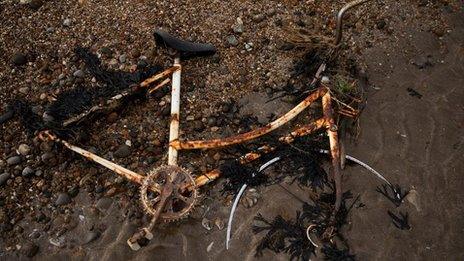Somerset: Study reveals mixed fortune for wildlife species
- Published
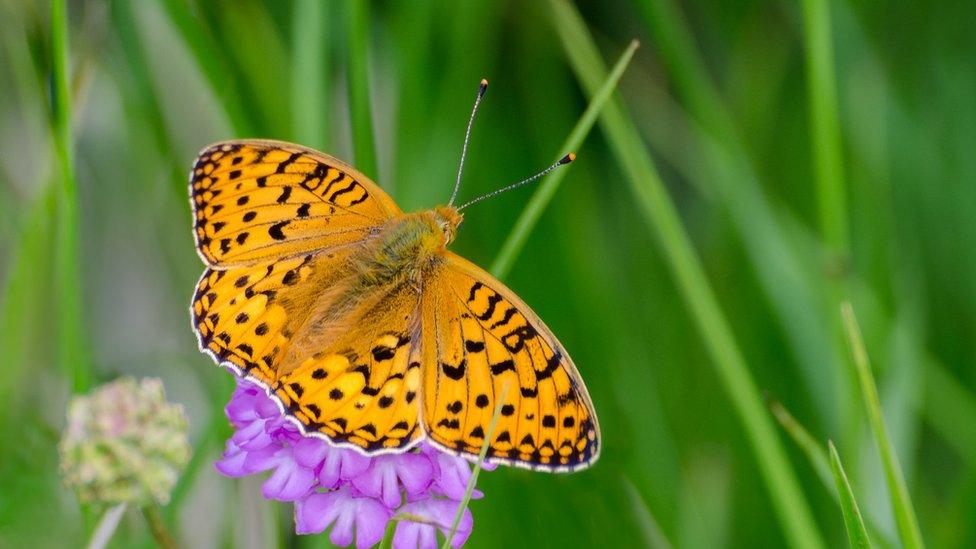
Fritillary butterflies have seen a 60% decline in distribution
A species of butterfly has seen a massive decline in numbers after a loss of their natural habitat.
Somerset's population of Fritillary butterflies have reduced by 60% since 1990, according to a new study.
The Somerset State of Nature Report 2023 has revealed a decline in species and habitats in the county.
According to the Somerset Wildlife Trust report the county has lost grassland habitats that many species need to survive.
Simon Clarke from the Trust said: "[The report] tells us what we already know.
"The ecosystem functions that provide us clean air and water are waning, and with them, populations of precious wildlife."
The report is the first of its kind for Somerset and follows on from the national State of Nature Report 2023, which highlighted both positive and negative trends in wildlife diversity and distribution across the country.
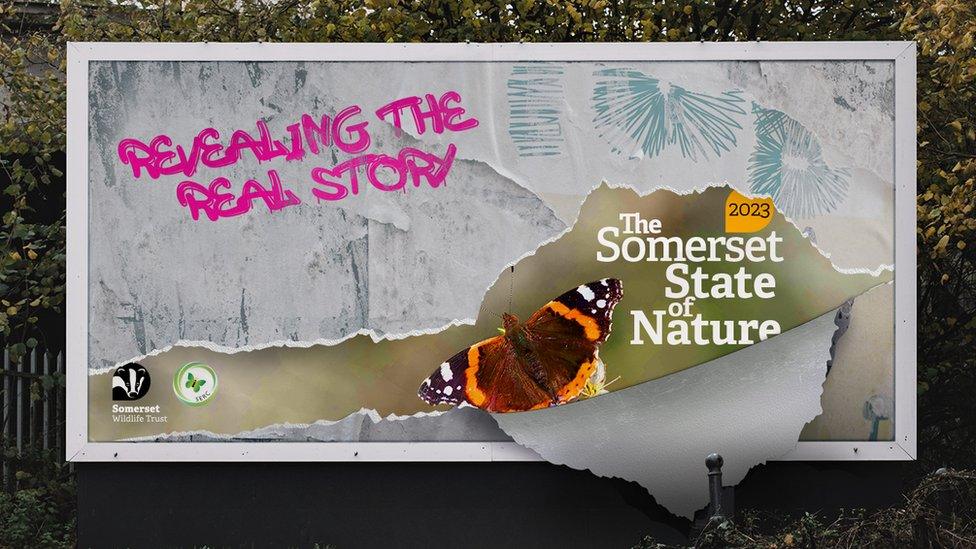
The Somerset report follows on from the national State of Nature report earlier this year
Mr Clarke added: "If you reach beyond despondency, what you can see and grasp are real seeds of real hope.
"What the report also highlights very clearly, is that where there has been focused effort on a landscape-scale, underpinned by a truly meaningful and committed partnership approach to nature restoration, the results can be simply outstanding."
The report did stated that some mammal species are thriving in Somerset, the return of beavers has received positive feedback with first recorded kits born earlier this year.
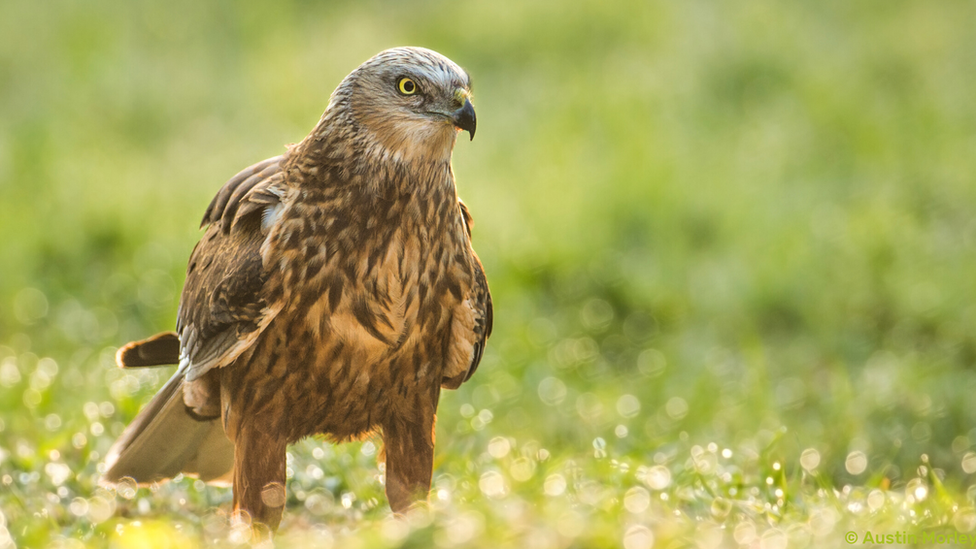
Marsh harrier populations have made a comeback, says the report
Marsh harrier and bearded reedling are also benefitting from collaborative efforts by partners to enhance reedbed habitats.
Somerset has the second-largest number of Local Wildlife Sites (LWS) in the UK, at 2,200.
Mr Clarke said: "The state of Somerset's nature is for us all to own, and this new report provides us with a baseline; a reference point for the actions we take going forwards."
"LWS are important areas for wildlife and are the building blocks within the nature recovery network and can buffer and protect existing protected sites within the wider landscape too".

Follow BBC West on Facebook, external, X, external and Instagram, external. Send your story ideas to: bristol@bbc.co.uk , external
Related topics
- Published3 December 2023
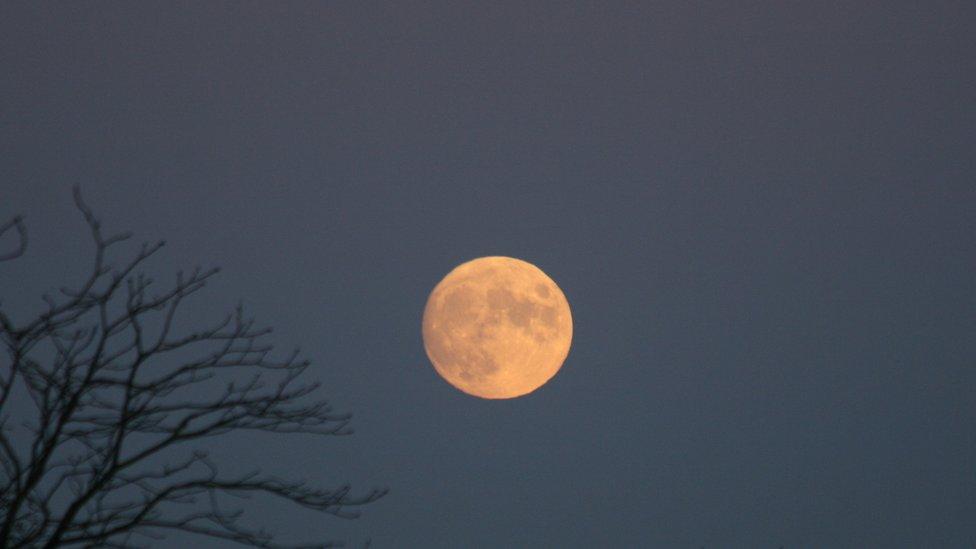
- Published12 May 2022
